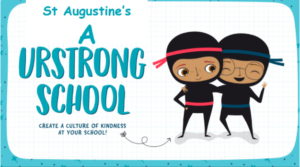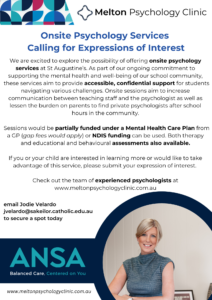Hi Families,
Welcome to Term Two!

We are very excited to announce that this term we will be starting a new evidence based friendship program called U R STRONG!
U R STRONG is a whole school skill based program where students will be empowered and learn the skills on how to be a good friend and how to deal with friendship fires!
Below is the link with some information about the program so please take the time to read and sign up to the free parenting membership in order to stay up to date with the common language students will be using at school.
I will keep you up to date with what students are learning in class so that you can have these conversations and use the same common language with your child.
Happy reading,
Ms Jodie
About URSTRONG Flyer -click on this link to view this flyer
Expressions of interest for Psychology Services on site at St Augustine’s




